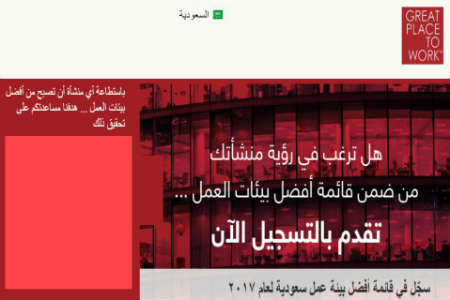In line with international business trends and best practices, entities from the public, private and non-profit sectors of Saudi Arabia are now competing to be recognized for the quality of their work environment. As recently reported by Great Place to Work®, there has been an increased interest in their workplace assessment program in the Kingdom, “Great Workplaces KSA 2017 List”, which includes more than hundreds nominations so far.
Mr. Mohammed Al Shair, Chairman of Great Place to Work® Middle East, described the interest as reflecting the market’s shift, saying: “This list aims to encourage implementing best practices in human resources, and creating effective work environments that ensure equal opportunities for everyone, while rewarding distinguished team members. Such practices will help local companies edge up their competitive advantages in global markets, and support emerging companies to become leaders in their fields.”
Mr. Ziad Ghosn, Managing Director of Great Place to Work® KSA, explained that: “participating in the list stimulates organizations to create and maintain a healthy work environment, showcase their capabilities and skills, and tap into new progressive methods and practices.”
Mr. Ghosn added: “We are witnessing a shift in the work environment concept in Saudi Arabia. It is no longer an option, but rather a prerequisite of success, and a necessity to achieve pre-set goals, regardless of the sector in which the organization is operating. With the new market dynamics and fast shifts, a great workplace ensures a much-needed sustainable competitive edge.”
The Saudi society has become increasingly aware that having a healthy work environment, and a supportive team, is directly related to the productivity of the employee, which reflects on the profitability of the company.
It is worth mentioning that the “Great Workplace list” that was first launched in the Kingdom in 2014, is known for being the world’s first assessment program to recognize and evaluate the best working environments, and is currently being adopted by more than 40 countries around the world.

